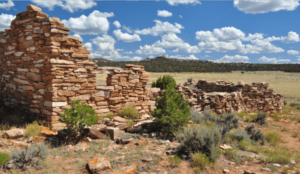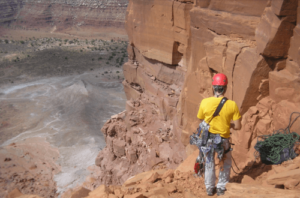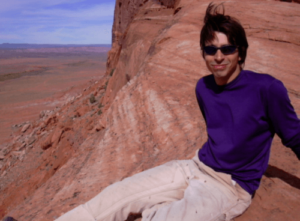Written by Scott Braden, Wilderness and Public Lands Advocate
They say that one journey can change your life. It happened to me. When I was ten years old, my dad and I drove from my home state of Georgia to Colorado and Utah, where I was immediately taken with the red rocks, swirling sandstone, and contortionist arches that embody the canyon country of the American Southwest. I was hooked, finding my way West again soon after college for a summer job in southern Utah at Outward Bound. The seasonal job turned into something more, and I’ve been making my living as an educator and activist for public lands ever since. In fact, my wife and I recently decided to move from Denver to Western Colorado to live as close as possible to these rivers and canyons.
Last month, President Barack Obama designated Bears Ears National Monument, protecting 1.35 million acres of national public lands in southern Utah’s incomparable canyon country. This effort, a culmination to years of work, was led by Hopi, Ute, Navajo, Ute Mountain Ute, and Zuni tribal leaders, and it will protect tens of thousands of sacred cultural and archaeological sites. It will also preserve an incredibly unique landscape on the Colorado Plateau. It’s one of my — and many Coloradans’ — favorite places to explore in the world.

One of the many cultural sites in the Bears Ears area.
President Obama protected Bears Ears using the Antiquities Act, one of the most important conservation tools for the nation. The Antiquities Act has been deployed to create parks and protect some of Colorado’s most exemplary natural treasures, from the Great Sand Dunes to Browns Canyon, and from Chimney Rock to Colorado National Monument. The Act was created in 1906 during the administration of the conservationist president Theodore Roosevelt. It has been used by presidents of both parties to protect over 500 million acres of lands and seas. President Obama has used the Antiquities Act more than any previous president, permanently protecting 568 million acres of land and sea.
Despite these tremendous conservation gains, the Antiquities Act has some enemies. Utah Representative Rob Bishop has vowed to work with the Trump administration to undo protections for Bears Ears and other areas protected by President Obama and President Clinton by the Antiquities Act, including those in Colorado (this would mean rolling back protections for Browns Canyon, Chimney Rock, and Canyons of the Ancients). These efforts to roll back protections are unprecedented, making it unclear if this is even possible.

Bears ears is known for its myriad historical sites, incredible red rock views, unparalleled recreation opportunities, including rock climbing.
Already in the first week of Congress, Alaska Senator Lisa Murkowski and 25 other Republican senators (though thankfully none from Colorado) introduced a bill to gut the Antiquities Act, by requiring the approval of Congress and the state legislature where the monument is proposed. This would effectively halt any new national monuments in the places that need them most — places where Congress has utterly failed to protect public lands and cultural treasures. In Colorado, Browns Canyon National Monument’s designation came after thirty years of bipartisan efforts to protect this landscape through Congress came to naught.
To keep the Bears Ears and other national monuments protected, we must stand up for our public lands and the West’s national parks, monuments, and forests. The Antiquities Act and even public lands themselves face an existential threat. There is an anti-parks and public lands agenda that is moving forward only because it’s backed by big-money interests like oil and gas, mining, and logging. You and I, the citizens who care about these places, are the only ones who can save them.
Western public lands and monuments are symbols of freedom and possibility, what the great writer Wallace Stegner termed “the geography of hope.” They captured my spirit, and I’m forever grateful. They give me hope, and it is my most sincere hope that they will captivate the imagination and inspire generations to come.

A young Scott Braden enjoying a site that would eventually become part of Bears Ears National Monument.






